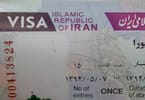Hawaii Senator Inouye’s last word, according to a statement released by his staff, was “Aloha.”
Senator Inouye had been hospitalized since early December due to respiratory problems. His cause of death was listed as “respiratory complications.”
Inouye had served in the Senate since 1962 and represented Hawaii since 1954. He served as the Senate Pro Tempore — the designation for the chamber’s longest-serving Senator — and the person third in line to the Presidency. He also chaired the powerful Senate Appropriations Committee at the time of his death.
More than any other statesman in the history of these volcanic islands – more than Kamehameha the Great, who united them into a kingdom in 1810, or Gov. John Burns who led the political revolution that established Democratic Party rule here in 1954 -Inouye, 88, has ruled over Hawaii.”
Immediately following Inouye’s death, his colleagues took to the Senate floor to remember him. ”His service to the Senate will be with the greats of this body,” said Senate Majority Leader Harry Reid (Nevada).
US Congressman Gregorio Kilili Camacho Sablan from the Northern Mariana Islands was one of the first that issued a release and expressed his sadness today at the passing of Hawaii Senator Daniel K. Inouye.
“Senator Daniel K. Inouye was a great American and a great man of the Pacific. We will miss him sorely. Senator Inouye lived his entire life working for justice and respect for all. Though he faced suspicion and prejudice as an American of Japanese ancestry, he gave himself fearlessly in defense of his nation during World War II. He bore the terrible wounds of that conflict, yet remained indefatigable physically and in spirit, a brave warrior for the powerless and forgotten.
“I personally owe so much to Senator Inouye, for whom I worked as a fellow in 1986. That experience and the example of Senator Inouye left me resolved to represent the people of the Northern Mariana Islands should we ever be allowed a seat in Congress. I hold that seat today, holding Senator Inouye as my mentor for determination in pursuit of what is just and for service to the people I represent.
“We will never forget this good man and great American.”
The following is a statement by former Senator Pete V. Domenici (R-NM), a Senior Fellow at the Bipartisan Policy Center, on the death of Senator Daniel Inouye of Hawaii:
“Daniel Inouye’s passing brings to a close the career of an extraordinary patriot, statesman, and human being. He was a dear friend of mine. In the 36 years we served together in the Senate, we worked on innumerable bills. I was fortunate enough to spend time with him a few weeks ago, where we discussed not only the work we had done together, but the work left for Congress to address.
“Losing men of Senator Inouye’s caliber should do two things: remind us of the greatness of giants like him and challenge this Congress to put its nation first, and its joint and singular ambitions far second. Never was it impossible for Senator Inouye and me to reach agreement on even the most divisive and difficult issues.
“I urge everyone to read Senator Inouye’s biography and then ask, ‘what is so hard about facing the challenges of today, when he and his compatriots triumphed over much worse without complaint?’
“My wife, Nancy, joins me in sending our deepest condolences to the Senator’s family and to all those in Hawaii and in Congress who will miss his courage and his wisdom.”
Inouye’s seat will be filled by an appointment by Gov. Neil Abercrombie (D). He will pick from three finalists provided by the state Democratic Party. State law requires that Inouye must be replaced by a senator from the same political party. Inouye’s seat is up for a full term in 2016.
Senator Inouye was a strong supporter for equality.
His website reflects his legacy:
One of the first challenges came as a young member of the Hawaii Territorial Legislature. The issue involved the codification of the death penalty law. Upon studying the issue, it became clear to me that no member of the then privileged, mostly Caucasian upper-class had ever been executed. Rather the death penalty was used on members of the immigrant plantation class and on Native Hawaiians. The notorious Massie case in 1931, where a Navy officer and his mother-in-law were convicted of manslaughter in the death of a Native Hawaiian, but their 10-year sentence was commuted to a one-hour meeting with the Governor, was a tragic demonstration of a dual system of justice based on prejudice and privilege. Hawaii to this day has never had a death penalty law, as other states are re-thinking, re-working on abolishing their laws because of the inability to remove the inherent, unfair biases from the law.
Unfortunately, there will always be discrimination. There will always be men and women of prejudice in a free society. While we should expect it to occur, we must never become so complacent to let it go unchecked. There must continue to be a group of voices willing to stand up and speak up. If not for this vocal segment, America may still have segregated schools, theaters, and churches. If not for this vocal segment, America may have stayed in the Vietnam War even longer than needed.
Oftentimes, it takes as much, if not more, courage to speak out and oppose our government’s actions. It should be viewed no less patriotically than those who wave the American flag. This freedom is at the core of our democracy, and is testament of our enduring legacy.
It has been said that the wheels of justice grind slowly – it may seem intolerably slow to victims of injustice. This can be said of interned Japanese Americans, Native Americans, Filipino World War II veterans, and illegal overthrow of Queen Liliuokalani and the Hawaiian nation.
I hope to restore a measure of faith in our nation’s system of government as wrongs are acknowledged, refuted, and redressed. These chapters must remain in our collective conscience as a grave reminder of what we are capable of in times of crisis or are without a stable system of checks and balances, and what we must not allow to happen again to any group, regardless of race, religion, national origin, gender, or sexual preference.
Recognition of the Sovereignty of Native Hawaiians
Native Hawaiians have had a political and legal relationship with the United States for the past 140 years – as shown through treaties with the United States and in over 100 federal statutes. But unlike the native people whose federally-recognized status was terminated, the government of Hawaii that represented the Native Hawaiian people was overthrown with the assistance of US troops on January 17, 1893. A century later, in 1993, Senator Akaka and I co-sponsored the landmark Apology Resolution in which the United States issued a formal apology for its role in the illegal overthrow of the Hawaiian monarchy. Currently, the Hawaii Congressional Delegation, is working to pass legislation which acknowledges the inherent right of Native Hawaiians to self-determination and self-governance. The time for reconciliation is long overdue.
Justice for Filipino Veterans of World War II
Recognition for the Filipino World War II veterans and an acknowledgment of their service has always been a matter of honor for me. I authored a provision in H.R. 1, the American Recovery and Reinvestment Act of 2009 (Public Law 111-5) enabling one-time payments of US$15,000 to Filipino World War II veterans who are US citizens, and US$9,000 to Filipino World War II veterans who are non-citizens for a total of US$198 million. There are approximately 18,000 living Filipino World War II veterans who would be eligible under the lump sum payment provision.
Redress for Japanese Americans after World War II
Senator Matsunaga and I worked hard to pass the Civil Liberties Act of 1988, a law that acknowledged the fundamental injustice of the evacuation, relocation, and internment of US citizens and permanent residents of Japanese ancestry during World War II. The Act authorized redress payments to surviving internees, and created a public education fund to ensure that similar violations of civil liberties will not be repeated against any other group based on race, religion, or national origin.
Preservation of Internment Campsites
Continuing my work in public education and the protection of civil liberties, I supported the passage of P.L. 109-441 in 2008, establishing a grant program within the National Park Service to preserve internment campsites across the United States. During World War II, over 1,000 Japanese Americans were incarcerated in at least eight locations in Hawaii. Those detained included the leaders of the Japanese immigrant community, many of whom were taken from their homes in the hours after the attack on Pearl Harbor. Many of the detainees’ sons served with distinction in the US armed forces, including the 100th Battalion, 442nd Regimental Combat Team and Military Intelligence Service. The Honouliuli Camp Site on Oahu is eligible for the grant program, which is currently funded at $1 million. Earlier this year, I introduced the Honouliuli Internment Camp Special Resources Study Act of 2009 to authorize the Secretary of Interior to study the Honouliuli Gulch and associated sites located in the State of Hawaii to determine the suitability of designating one of these sites as a unit of the National Park system.
Uncovering Truth
Commission to Study Japanese Latin Americans’ Internment: The story of US citizens taken from their homes and confined in camps is a story that was made known after a fact-finding study by a Commission that Congress authorized in 1980. Far less known is the story of Latin Americans of Japanese descent taken from their homes in Latin America, stripped of their passports, brought to the US, and interned in American camps and used for war-related civilian exchanges with Japan. I am working to pass a bill to create a commission to study the facts surrounding the internment of Latin Americans of Japanese descent.
Righting the Wrongs for Native Americans
In my nearly 30 years of service on the Senate Indian Affairs Committee, I have been fortunate to learn about the history of our nation, and its relations with the indigenous people who exercised sovereignty on this continent. As a nation, we have changed courses many times in the politics governing our dealings with native people. We began with treaties with native people, and then turned to war. We enacted laws recognizing native governments and then passed laws terminating our relationships with these governments. Most importantly, for the last 30+ years, we have adopted a policy of recognizing and supporting the rights of our nation’s First Americans to self-determination and self-governance. We must remain steadfast in our resolve to uphold this policy and to ensure that America’s native peoples were treated fairly and respectfully.
During my tenure as Chairman of the Indian Affairs Committee, I worked to pass many laws. Some examples include: the Native American Graves and Repatriation Act, the Indian Gaming Regulatory Act, the Indian Self-Determination Act, the Indian Health Care Act, the Native American Housing Assistance and Self- Determination Act, Indian Child Welfare Act, the Indian Child Protection and Family Violence Prevention Act, the Native American Languages Act, the Indian Energy Resources Act, the Indian Dams Safety Act. The list goes on. I am also very proud of my efforts to establish the National Museum of the American Indian to recognize the greatness of our native peoples who were the first to roam and live on this land.
Hate Crimes
Preserving the freedom and liberty of all our citizens is one of our primary duties as Americans, and I am proud to support legislation that protects the safety of those who are most at jeopardy. Hate crimes legislation recognizes that violent crimes motivated by bigotry and hatred are particularly damaging to victims, and therefore justify harsher penalties. Because the violence is as much directed against the victims’ bodies as their very identities, a hate crime exacts a higher psychological toll upon victims. Moreover, hate-motivated violence sends a message of intolerance and fear to all members of the victim class. This has no place in our communities.
Controlling Access to Guns
I believe it is possible to regulate the purchase and sale of firearms without contravening the Second Amendment. The Second Amendment of the US Constitution does not bestow upon an individual the unqualified right to purchase and possess every type of weapon and ammunition for any and all purposes. No gun control measure has been challenged successfully as a violation of the Second Amendment. However, gun control measures are not designed to disarm law-abiding citizens or to take away a person’s right to own a gun. Rather, they are implemented to ensure that criminals and others who are statutorily prohibited from possessing firearms are not able to purchase weapons and ammunition with ease, particularly when the purchase is likely to be for an unlawful purpose. I have supported measures to limit the sale, transfer, purchase and manufacture of handguns and semi-automatic weapons. I support the ban on assault weapons, and will do my best to have it reinstated. The possession, sale, transfer, purchase, and manufacture of fully automatic weapons for the general public is already prohibited by law.
Women’s Reproductive Rights
I have been, and continue to be, supportive of women’s reproductive choices. My support for family planning programs and contraceptive research reflects my belief that banning abortions alone will not reduce their numbers as effectively as a serious effort to prevent pregnancies among those not prepared to bear children and be parents. In addition, I remain committed to the health, education, job training, and child care programs that permit women to continue unplanned pregnancies and raise healthy children.
Freedom of Religion and the Separation of Church and State
Among the fundamental liberties upon which this country was founded, religious freedom ranks as one of the highest. Fleeing persecution based upon their religious beliefs, the ancestors of the Founding Fathers came to this new land seeking the freedom to practice their religions and worship as they chose. Later, the assurance of this same freedom was secured for future generations in the United States Constitution, which establishes the right to practice the religion of one’s choice, and preserves this right by separating church and state. Both of these components are necessary for the full protection of religious freedom because freedom of religion becomes largely illusory when the government recognizes and supports certain established religions, to the detriment of others. I am a Christian, and have been all my life, but I would not want to force my faith upon anyone else. Faith arises in each of us according to our understanding of the divine, not from government’s support of one church over the next. The First Amendment assures each American this freedom to worship, or not worship as he/she sees fit.
Same Sex Marriage
I support the rights of all couples to enjoy the emotional, social, and legal benefits of a long-term, loving relationship. Domestic unions should be available to every couple, and should carry with it all the legal rights, privileges, and responsibilities. Although many of the legal benefits of the marital relationship can be reached through contracts between the couple, some cannot. Principal among these, are hospital visitation rights. However, state laws on intestacy and estates in land hinge on whether a couple is married or not, and under the Defense of Marriage Act, federal benefits for married couples are now expressly limited to couples comprised of different genders.
The issue of same sex marriages sparks passionate beliefs, heated debates and ugly stereotypes. I hope that there is room for compromise. I believe that domestic unions provide for a middle ground between the extreme positions, based on existing contractual law, and tempered with fairness and understanding.
More of Senator Inouye achievements include:
Apology Resolution – Akaka Bill
Native Hawaiians have had a political and legal relationship with the United States for the past 140 years – as shown through treaties with the United States and in over a hundred Federal statutes, including the Hawaii Admissions Act. But unlike the native people whose federally-recognized status was terminated, the government of Hawaii that represented the Native Hawaiian people was overthrown with the assistance of US troops on January 17, 1893. A century later, in 1993, Senator Akaka and Senator Inouye sponsored the landmark Apology Resolution in which the United States issued a formal apology for its role in the illegal overthrow of the Hawaiian monarchy. In this resolution, there was a call for reconciliation.
The Akaka bill was written to accomplish this goal. Native Hawaiians seek the full restoration of the government-to-government relationship they had with the United States. The Akaka bill is important to all citizens of Hawaii. For those of us who were born and raised in Hawaii, we have always understood that the indigenous people of Hawaii have a status that is unique in our State. As one who has served the citizens of the State of Hawaii for over 50 years, Senator Inouye believed that there is support for reconciliation and an acknowledgement of the inherent right of Native Hawaiians to self-determination and self-governance.
Kahoolawe
After the attack on Pearl Harbor, the US declared martial law, which began the use of Kahoolawe as a bombing range. Later, President Eisenhower transferred the title of Kahoolawe to the US Navy with the provision that it be returned in a condition for “suitable habitation” when no longer needed by the military. In 1990, at the urging of the Hawaii Congressional Delegation, President George Bush Sr. ordered the Navy to stop the bombing of Kahoolawe.
In 1993, as Chairman of the Appropriations Subcommittee on Defense, Senator Inouye authored Title X of the Fiscal Year 1994 Department of Defense Appropriations Act, that directed the United States to convey Kahoolawe and its surrounding waters back to the State of Hawaii. Congress later voted to end military use of Kahoolawe and authorized US$400 million for ordnance removal. The Navy expanded the full US$400 million to clean up the unexploded ordnance from the island. However, there remain areas with UXO still buried in the land or in the surrounding waters. The official turnover to the State of Hawaii was made on November 11, 2003. The Kahoolawe Island Reserve Commission oversees the restoration efforts, as well as access to the island. Access to Kahoolawe requires escort and careful attention within areas known to contain unexploded ordnance.
Education/Job Training
Senator Inouye supported US$335.2 million dollars over 10 years for Native Hawaiian education initiatives focusing on early and pre-school education; Hawaiian language immersion curriculum; recruitment and retention of Native Hawaiian teachers; programs targeted to improve literacy, math and science skills, language arts, the social studies; higher education scholarships; gifted and talented programming; vocational education; and culturally-targeted drug prevention and education.
This includes the Ka Huli Ao Native Hawaiian Law School Center of Excellence at the University of Hawaii to facilitate discourse between the legal community, the Native Hawaiian community, and the community at large. It promotes education, research, and scholarship on the unique aspects of Native Hawaiian law, including the intersection between local, federal, and international laws affecting Native Hawaiians. It also offers new courses and supports Native Hawaiian and other law students as they pursue legal careers and leadership roles.
Other recent grantees include Partners in Development, Kanu o Ka Aina Learning Ohana, Pacific American Foundation, University of Hawaii – Maui Community College, Institute for Native Pacific Education and Culture, Kaala Farm, University of Hawaii, Ke Kula o Samuel Kamakau, Mano Maoli, Alu Like Inc., Project Nana pulapula, and Hoola Lahu
In addition, Senator Inouye provided US$6.3 million for the Native Hawaiian library and museum services which provides opportunities for improved library services at the Bishop Museum, Alu Like, and related organizations, such as the Carl D. Perkins Vocational Education and Applied Technology Education Act authorizing the creation of vocational education programs to improve the employment status of Native Hawaiians. Alu Like, Inc. is the recipient of these funds to provide education and job training for Native Hawaiians. Over the last 10 years, US$33.8 million has been appropriated for this program.
Native Hawaiian Healthcare
Providing quality healthcare services to Native Hawaiians has always been critical. Cancer, diabetes, and heart disease continue to plague Native Hawaiians at a greater rate than all other ethnic groups. Early health prevention and promotion greatly improve the chances of providing proper treatment to increase their longevity. Over the years, Senator Inouye has secured over US$115 million for Native Hawaiian healthcare. These funds have been used through Papa Ola Lokahi to provide preventative care, traditional healing practices, and general health services.
Senator Inouye has facilitated US$20 million in funding over 10 years for the Administration on Aging grants to Native Hawaiian organizations. This funding promotes the delivery of supportive programs, including nutrition services to older Native Hawaiians and provides multifaceted systems of support services to family caregivers.
Language
Language is the key to the survival of all cultures. In 1896 shortly after the overthrow of Queen Liliuokalani, education taught in the Hawaiian language was outlawed. Nearly 100 years later, in the 1980s, the number of children under the age of 18 who were native speakers had diminished to about 50. This called for a unique intervention. In 1983, Aha Punana Leo was established with federal support to begin the long process of restoring and revitalizing the Native Hawaiian language. It began with the Native Hawaiian language preschool immersion program. Today, Native Hawaiian children can obtain their entire K–12 education in Hawaiian.
In 1990, as the Chair of the Indian Affairs Committee, Senator Inouye authored the Native American Languages Act. It became the law of the land to support the revival of native languages. A masters and doctorate in Hawaiian language at the University of Hawaii at Hilo are the first such offerings for native languages in the country.
Culture and the Arts
The Polynesian Voyaging Center provides cultural education programs geared towards enhancing leadership skills and cultural knowledge through ocean voyaging. With a legacy of ocean exploration as its foundation, and US$431,000 has been provided to support voyages of discovery; foster respect and learning about Native Hawaiian heritage and culture; and strengthen learning through the integration of voyaging, science, and culture experiences into quality educational opportunities.
Senator Inouye provided in excess of US$11.6 million in support of the Education through Cultural and Historical Education program, managed by the Bishop Museum, to foster innovative culture-based learning. These educational programs, shared through partnerships with four mainland states and Alaska, embraces cultural exchanges between schools, museums, and communities.
The Native Hawaiian Culture and Arts Program (NHCAP) was authorized in 1984 to provide a greater sense of cultural awareness and ethnic pride essential to the survival of the Native Hawaiian people. US$6.8 million has been appropriated to support this effort. NHCAP’s efforts are focused on encouraging Hawaiians to preserve and practice their traditions in a rapidly changing multi-cultural world, and to share and celebrate Hawaiian art and culture with the broader state, national, and international community.
WHAT TO TAKE AWAY FROM THIS ARTICLE:
- That experience and the example of Senator Inouye left me resolved to represent the people of the Northern Mariana Islands should we ever be allowed a seat in Congress.
- I hold that seat today, holding Senator Inouye as my mentor for determination in pursuit of what is just and for service to the people I represent.
- US Congressman Gregorio Kilili Camacho Sablan from the Northern Mariana Islands was one of the first that issued a release and expressed his sadness today at the passing of Hawaii Senator Daniel K.






















